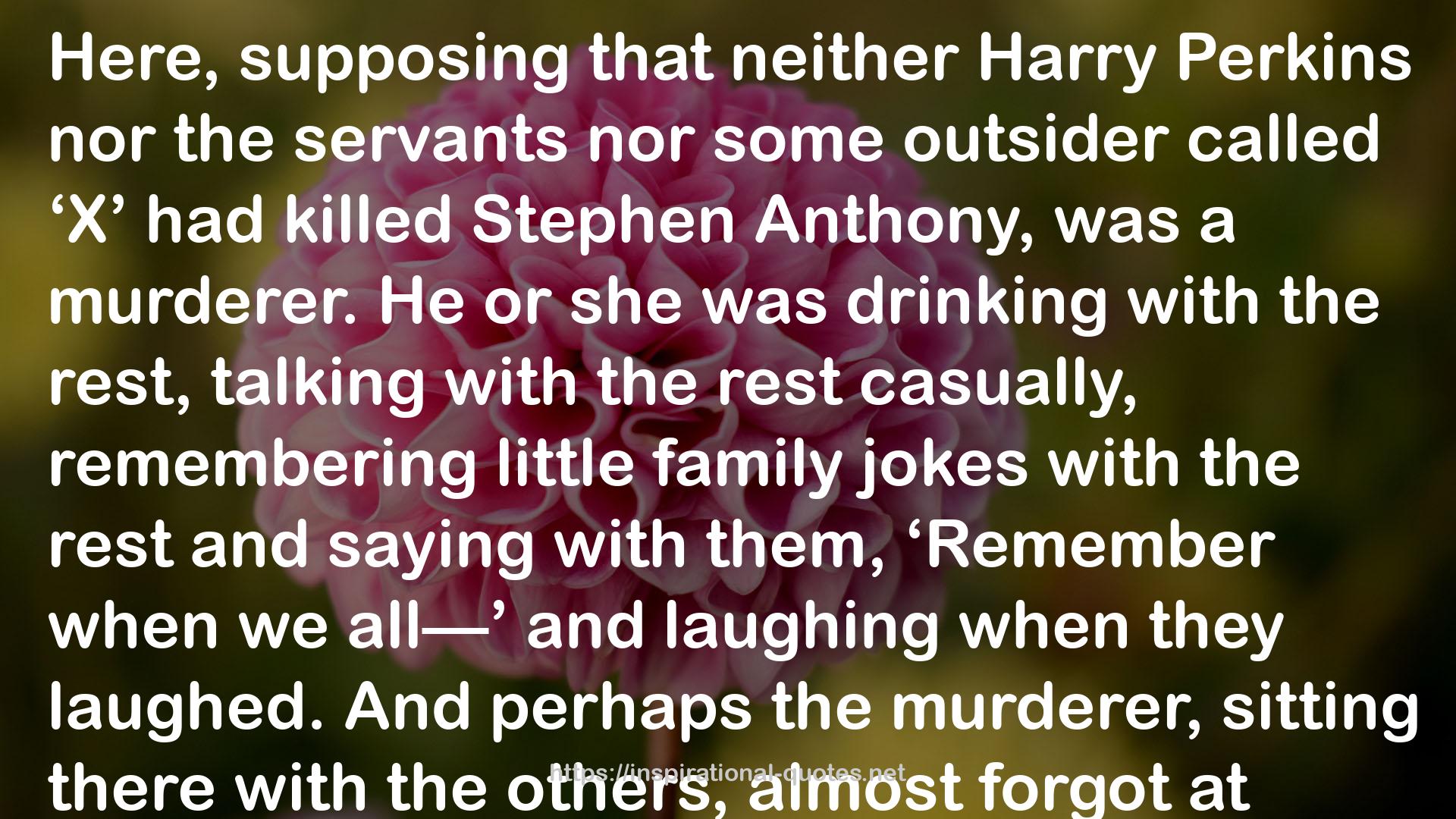" Here, supposing that neither Harry Perkins nor the servants nor some outsider called ‘X’ had killed Stephen Anthony, was a murderer. He or she was drinking with the rest, talking with the rest casually, remembering little family jokes with the rest and saying with them, ‘Remember when we all—’ and laughing when they laughed. And perhaps the murderer, sitting there with the others, almost forgot at times he was a murderer, because even a murderer cannot always remember, as the grief-stricken cannot always remember grief.
But it must come back again and again, that sense of being a murderer. Sometimes it must come in the middle of speech, confusing a thought already formulated—it must go round and round in the head, the knowledge of murder and of pursuit. The thought that shrewd men and clumsy men, intelligent men and dogged men, men in blue uniforms and men in slouch hats, were everywhere after you must make a coldness in your mind. Here a man was talking to somebody, and perhaps a word would give you away. Here a man was peering through a comparison microscope at tiny scratches on a piece of metal, and perhaps some scratch would give you away. Here a man was sifting through papers, steadily, unwearingly, looking for some written word that would give you away. And when he was tired, another man would look. And somewhere men in white uniforms were probing with knives into the body of the man you had killed, looking for something which would give you away.
All over the city, you would think, men would be searching for you—in words and in metal, in scraps of paper, in the things you did yesterday and the things your victims had planned to do tomorrow—and there would be no stopping them. Because, whatever they tolerated, the police did not tolerate murder, or ever give up looking for a murderer. "
― , Hanged for a Sheep (Mr. and Mrs. North #5)
